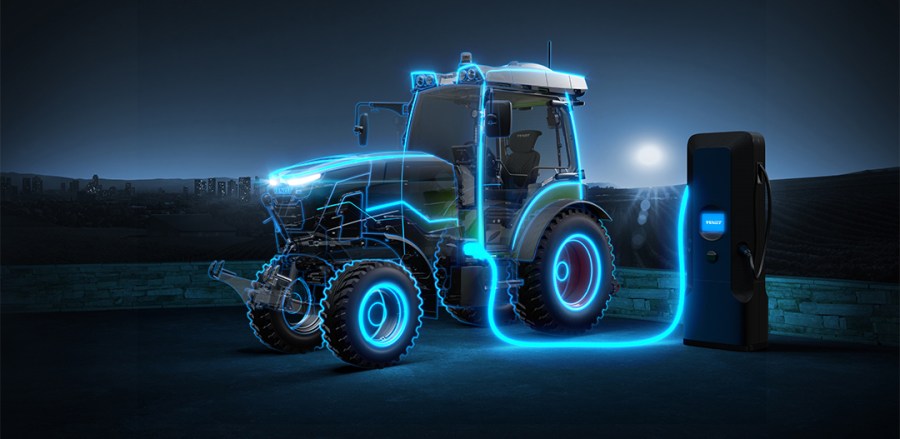
Application of Lithium-Ion Batteries in Electric Tractors
The application of lithium-ion batteries in electric tractors represents a transformative technological shift beyond simple power replacement. As the "heart" of electric tractors, the technical characteristics and application models of lithium-ion batteries directly determine their performance, economic viability, and feasibility. Currently, this application is transitioning from the demonstration phase to early commercialization, presenting both opportunities and challenges.
Core Application Advantages
1. Revolutionary Improvement in Power Performance
-Instant High Torque: The combination of electric motors and lithium-ion batteries enables instantaneous release of maximum torque, providing unparalleled traction for tractors. This is particularly advantageous for heavy-load operations such as starting on slopes and deep plowing, with power response speeds far exceeding those of diesel engines.
-Precise and Smooth Control: The electronic control system allows for millisecond-level precise power output adjustment, ensuring extremelysmooth tractor movement. This is crucial for operations requiring high speed consistency, such as precision seeding and variable-rate fertilization, significantly improving work quality.
2. Excellent Environmental and Economic Benefits
-Zero Emissions: Completely eliminates diesel exhaust fumes and particulate matter, enabling clean production within the farm and improving the operator's working environment.
-Very Low Operating Costs: Electricity costs are significantly lower than diesel fuel costs. If combined with the farm's solar power generation, energy costs can approach zero. Additionally, maintenance costs for the electric system (no engine oil, filters, after-treatment systems, etc.) are substantially reduced.
3. Potential as a "Mobile Intelligent Platform"
-Power Take-Off Hub: The lithium-ion battery pack can not only drive the tractor but also provide stable, clean power for various electric implements (e.g., electric seeders, spreaders), achieving zero emissions across the entire operation chain.
-Foundation for Intelligence: Lithium-ion batteries provide ample power for the numerous sensors, high-computing-power computers, autonomous driving systems, and communication modules on the tractor, making it an ideal mobile platform for precision agriculture and smart farming.
Current Application Challenges
1. Energy Density and Range Anxiety
Agricultural operations are characterized by long hours and high intensity, demanding high battery capacity. The current energy density of lithium-ion batteries is insufficient to support large tractors in all-day, high-intensity operations, making range capability the primary bottleneck.
2. High Initial Purchase Cost
The cost of lithium-ion batteries still constitutes a significant portion of the total vehicle cost, resulting in the selling price of electric tractors being much higher than that of comparable diesel tractors. This is the main economic barrier to their large-scale adoption.
3. Charging Infrastructure and Efficiency
Farms are often located in remote areas, lacking high-power charging networks. Slow charging cannot meet the demands of continuous operation, while deploying fast-charging stations is costly. The charging time remains a significant disadvantage compared to "refueling in minutes."
4. Durability and Environmental Adaptability
Harsh agricultural conditions, including strong vibrations, dust, humidity, and extreme temperatures, pose severe challenges to the cycle life, safety, and thermal management system of lithium-ion batteries.



